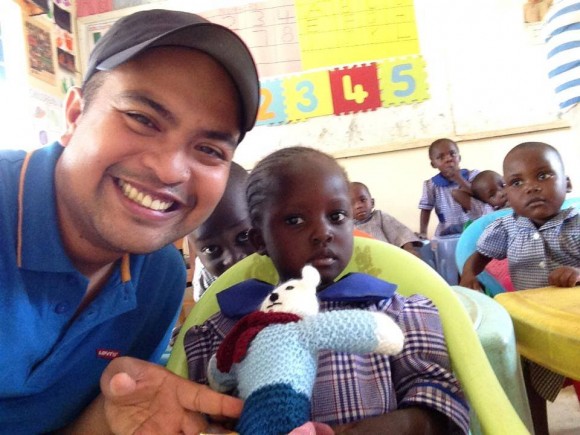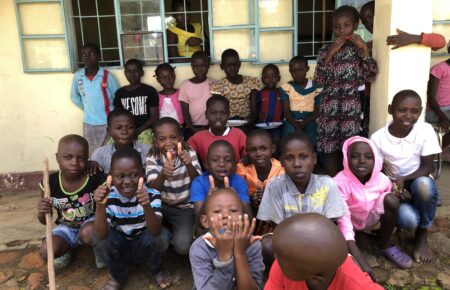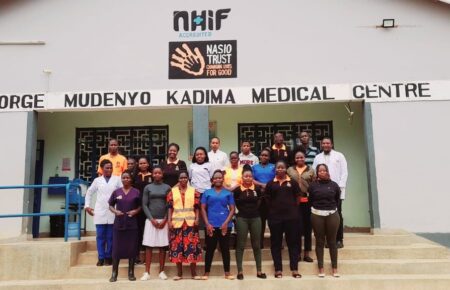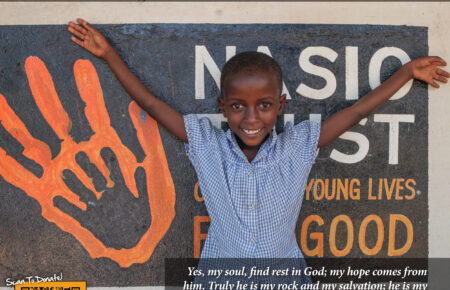Stolen Childhood
September 2014
In many countries of the world, children enjoy the rights attributed to them by society. The UN Convention on the Rights of the Child says that every child has:
- The right to a childhood (including protection from harm)
- The right to be educated (all girls and boys should complete primary education)
- The right to be healthy (including the availability of clean water, nutritious food, and medical care)
- The right to be treated fairly (laws and practices that are unfair to children should be changed)
- The right to be heard (including the consideration of children’s views)
How can children have these rights in a community where extreme poverty exists? How can children be accorded these rights in an unjust society? How can children enjoy these rights when they have to fight for their own survival, every day of their lives?
Many of our children do not even know the meaning of childhood. They do chores that adults should be doing for them. Sharon, one of The Nasio Trust children, was six years old, when I first met her. Her Mum, who is HIV positive, does casual labour far away from home. For some time, Sharon had to care for Eugene, her nephew. He is only three years old. Sharon would cook, when food could be found, do the laundry and make sure that they both get to the Day Care Centre to receive medical care, nourishing meals, and education. It is a big responsibility for Sharon to take such good care of her nephew, in addition to her own needs. It also means that in more than one way, she has lost her childhood. Her biggest worry was to find food for Eugene and herself on Saturdays and Sundays, when our centres are closed. When we know about this kind of problem, we take action to help, immediately. However, the fact is that Sharon and Eugene are just two of nearly four hundred children who are all facing similar problems. How can we improve the lives of these families to help them become independent and not have to rely on charity?
Rachel (not her real name) has a shocking story. She is four years old and was admitted to the Nasio Day Care Centre, in late 2012. She was being raped by her 70 year old grandfather before she went to school, every time her mother was out of sight. After three months in our care, we noticed her behaviour and the way she played with other children. We informed her mother of our observations, and realised that somehow she already knew what was happening to her daughter. She was afraid that if she informed the authorities, she would be chased from her home. Since she relies on casual work, she would not be able to afford another place to live.
The Nasio Trust helped Rachel’s family to look for another place to stay and start a new life. We were preparing to take the case to the court, when the grandfather found out about this and killed himself, by taking poison. Experiencing rape for a year is enough to make any child think that all children are treated the same way at home. Rachel now has daily counselling from our staff to help her overcome the effects of this horrifying experience.
Every day, our staff and guardians hear heartbreaking stories. These only increase our determination to keep going. The issues we have to deal with are complex and varied. We have developed a strategy to begin returning the childhood that has been stolen from our children. We already provide them with daily nourishing meals, health care, clothing, and education. We have now commenced advocacy for our children’s rights. This includes the provision of opportunities to improve their lives, by giving them knowledge and skills in better agricultural methods, at an appropriate stage in their education.
We have already been providing these opportunities for their guardians, for some time past. These income generating activities provide a small but growing income for their families. They address matters of food provision, family security, and other issues. We have also started capacity building training through adult learning education for our guardians and illiterate people from the local community. This enables them to be equipped with the knowledge of how better to protect their own children, in future.
Most importantly, we make sure that our children, for so long as they remain in our Day Care Centres always feel loved and cared for. We do this in the best way possible with the resources at our disposal. Moreover, we ensure that they remain at the centre of all we do to restore the childhood that was stolen from them through tragic circumstances caused by poverty.
This story is listed in: About Nasio, Child Stories



